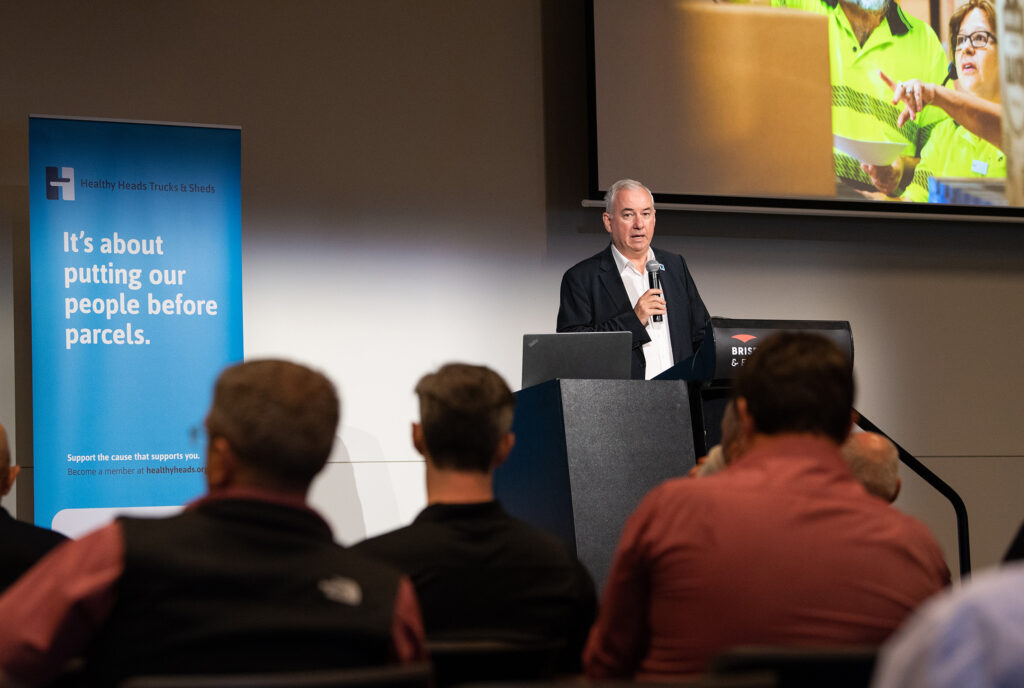
Helping to help the people that kept Australia moving
Opinion: Paul Graham
The last two years have been some of the most challenging our generation has faced.
A new world, with new words and terms. Lockdown, isolation, the 1.5 metre rule, social distancing, WFH, and the occasionally amusing but sometimes frustrating “you’re on mute”.
The pandemic came along and changed everything. How we spoke, lived, shopped, worked, and even socialised.
One constant remained, however. The logistics industry kept Australia moving, and they helped keep the wheels of the Australian economy turning.
When flights were grounded across the country, our drivers, our posties, the folks driving the road trains or manning the Post Offices remained on the front line. In many ways, they defined the term ‘essential workers’ along with those on the healthcare frontline.
Doctors and nurses kept us healthy. As bricks and mortar retail was required to close and businesses across the country pivoted to online, the truckies and posties helped keep the economy healthy.
Their resilience was tested, every day. Though the pandemic, Australia Post would experience some of its busiest months in its 213-year history. Over 5.7 million households would buy something online – more than half of all Australian households.
And throughout it all, it was the drivers, the posties, the distribution centre workers that remained on the frontline, and became a lifeline for so many businesses across the country. Working From Home was not an option for the folks driving the road trains.
COVID landed at a time when the impact of the preceding’s summer bushfires was still fresh in our minds – and tested not just the resilience of the industry but also underlined the pressure our drivers had to perform through COVID as well as natural disasters, up to and including the floods up and down the East Coast.
We all had our challenges the last few years, but for those working in the road transport, warehousing and logistics industries, those challenges hit a little differently.
Long hours, late nights, early mornings, driving through the night, tight deadlines, shift work and time away from family and friends are all factors that contribute to feeling isolated.
The transport, warehousing and postal industry has the lowest ‘thriving index’ score of any sector in Australia in terms of workplace mental health and wellbeing[1].
We know that as an industry, we can and must do better in how we look after the mental health and wellbeing of our people.
Today, across the country, workplaces in the road transport, warehousing and logistics industries are being encouraged to get the conversation wheels in motion to help their staff feel connected and supported at work.
‘R U OK? in Trucks and Sheds’ is a collaboration between R U OK? and Healthy Heads in Trucks & Sheds, aimed at ensuring people in the road transport, warehousing and logistics industries know when and how to meaningfully connect and genuinely ask “are you OK?”.
The Healthy Heads in Trucks and Sheds Foundation was established to promote prevention and understanding of mental health issues that exist across the road transport and logistics industries in Australia.
Its overarching aim is to build a psychologically safe, healthy and thriving working environment for all our people – from truck drivers to distribution centre and warehouse staff, and other road transport industry members.
The collaboration between Healthy Heads in Trucks & Sheds and R U OK? has led to the development of resources specifically for those working in the road transport, warehousing and logistics industries, creating a conversation guide and tool box for support to help people help each other.
Life’s ups and downs happen to us all. One thing we can all do is drive conversations with our workmates who might be doing it tough, to help them feel connected and supported.
This month I have written to all the people in our delivery, transport and processing teams to remind them of the help that is available to them.
To all people leaders out there, and team members alike, please know this: you don’t have to be an expert to ask the question. You just have to be there to listen and be genuinely willing to support someone through a difficult time.
So, get your workplace involved. Spot the signs that someone might be doing it tough. Prepare for an R U OK? Conversation. Learn how to ask, ‘are you OK?’, and how to listen, encourage action and check in. Know how to respond to strong emotional reactions and find help through support services.
Make mental health and the welfare of your people in this area part of your daily routine.
We all need to step up and help our industry, and our people.
It’s time to put words into action – and work together to protect and support the people that have kept the nation moving.
[1] Indicators of a Thriving Workplace – National Report 2021; Transport, Postal and Warehousing 2021 Industry Prof




